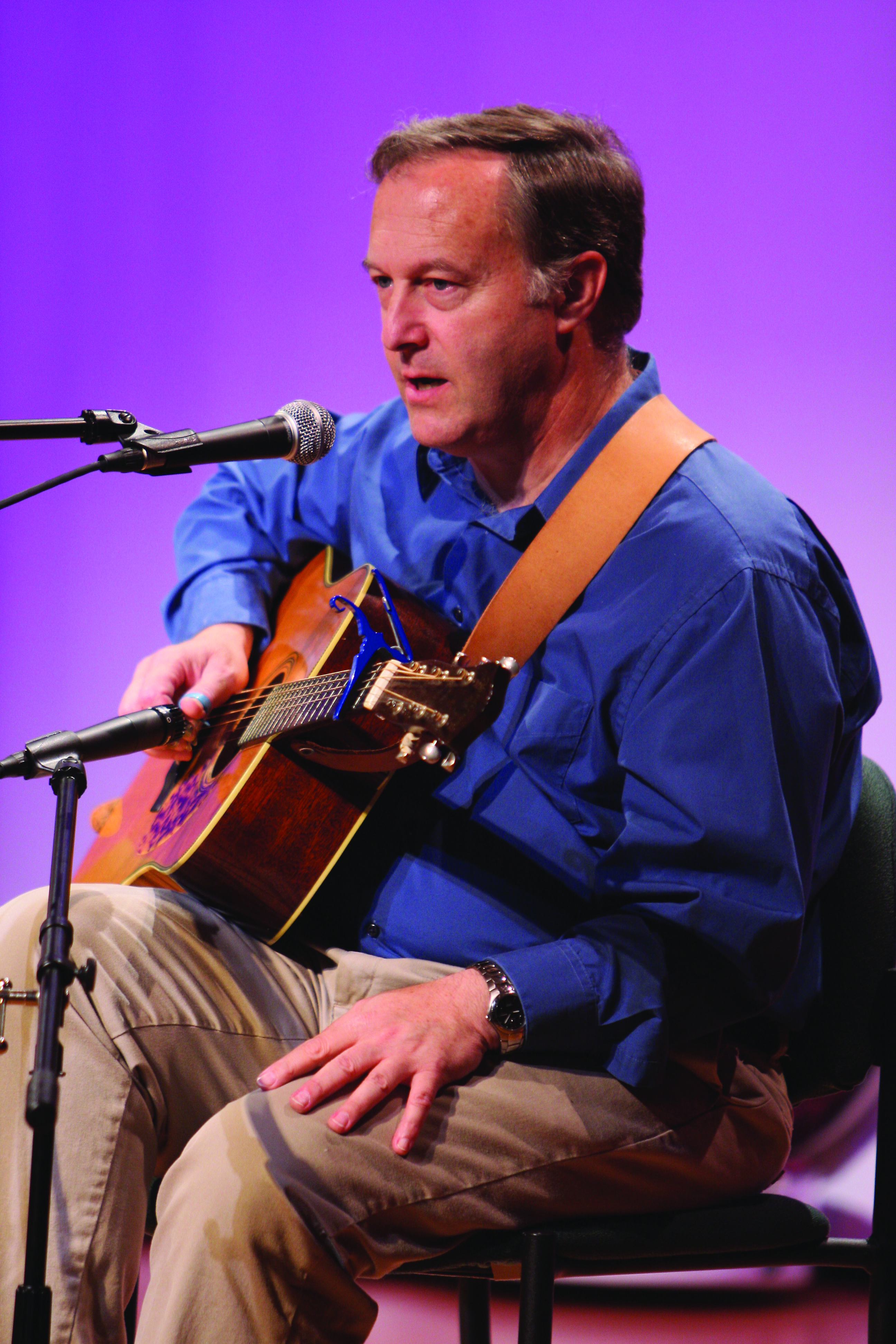

Jack Hinshelwood (photo by Robert Hinde)
Jack Hinshelwood is passionate about music but has spent most of his life working in a different field. Happily, in 2010, he got one of the most rewarding jobs of his life – executive director of The Crooked Road: Virginia’s Heritage Music Trail. He stayed there until 2019. But that wasn’t the beginning or the end of his musical journey.
“I had a guitar as a small child but didn’t really get the urge to play all the time until I was about 17 years old. After a short stint playing popular music, I soon discovered that I was living in a region of incredible traditional music. One of the great things about traditional music is that it is a community-based music which enriches the experience of playing it so much. The traditional music community is an amazing web linking together musicians, tunes and songs of the present, the past and the future. When you tap into that, you begin to understand the value of the connections you have with other people through the music in a very profound way.
“I was also very fortunate to have been able to learn traditional music from so many wonderful musicians, especially banjoist Olen Gardner and fiddler Buddy Pendleton. The first band I played in was Olen and Frances Gardner and the Appalachian Ramblers. Another vital means of learning the music was fiddlers’ conventions which featured amateur competitions. The first one I attended was in 1976 in Chilhowie where I placed second in the guitar contest. The motivation of that for a beginner like me was like rocket fuel. I couldn’t wait to get better and try my luck again. I still enjoy going to fiddlers’ conventions today and am delighted to be part of the committee that helped start the Abingdon Fiddler’s Convention, now in its third year,” Hinshelwood says.
From 1994-2018, he played with a group called Celtibillies that performed a mixture of Appalachian music and Celtic music. They performed at the Smithsonian Folklife Festival, toured Alaska and made three recordings. In 1989, Sharyn McCrumb moved in next door to him, and they discovered a common interest in Appalachian ballads. He and McCrumb developed a program where she would read from her Ballad book series, and Hinshelwood would play and sing the songs she referenced in her books.
“From 2010 to 2019 I served as executive director of The Crooked Road: Virginia’s Heritage Music Trail, one of the most rewarding jobs I have ever had. The Crooked Road region covers 19 counties in Southwest Virginia, and supports economic development and tourism by promoting one of the region’s greatest place-based assets — its traditional music. The organization is supported by music venues, musicians, businesses, local and stategovernment and others, so you are working sideby side with many people who are passionate about their home region. That is a very positive, affirming environment to work in.
“Since 2019 I have had the opportunity to produce music concert events in partnership with some great organizations that used the events to raise funds for their valuable work. Appalachian Sustainable Development, the Montgomery Museum of Art & History, and Friends of the Blue Ridge have presented these concerts in Emory, Blacksburg and Asheville. We are hoping to be able to present another concert fundraising event this fall to benefit the Montgomery Museum, FOBR and WEHC atEmory & Henry College,” he says.
His most recent project is‘Doc at 100,’ a touring concert program celebrating the life and music of the legendary North Carolina musician Doc Watson. Along with Ted Olson, Wayne Henderson, T. Michael Coleman and Jack Lawrence, they present concerts of Doc’s music but also include the stories of having worked with and performed with Doc.
“I hope to continue playing and recording music as long as possible and would like to continue creating concert events of interest to audiences. I mostly view the arts through the lens of music, which has helped me connect on a personal level with so many people throughout my life. I’m sure that’s true of all art forms that people share and get rewarded through the connections they make with one another. Being able to share our passions and interests with others is key to human health and certainly that applies to youth who now live in a technical world that sometimes offers too many ways to opt out of making deeper personal connections.
“I am certainly honored to receive this award, especially when I look at what the current and past recipients have done to further the arts in their lives and their communities. The award and the work of the AAME is another way that the arts bring us together and create those connections that lead to stronger communities,” he says.